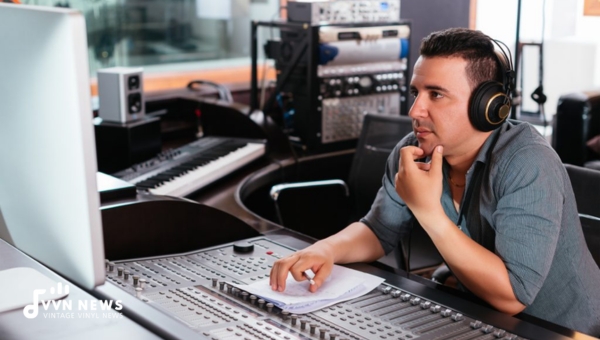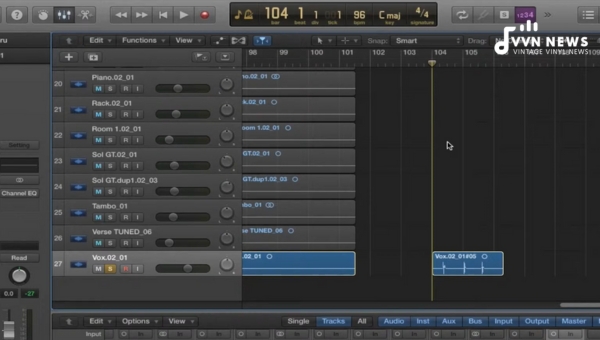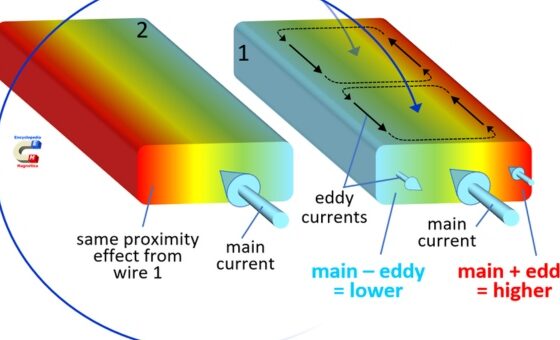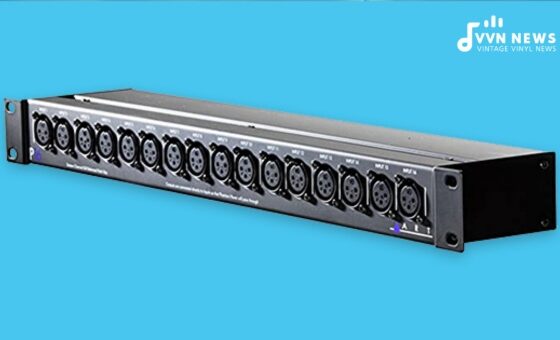In a world dominated by sound – from the latest chart-topping tracks to the immersive worlds of video games – have you ever stopped to consider who’s behind the pristine audio quality we’ve come to expect?
You may marvel at the acting or musical talent, but these professionals would be lost without teams working tirelessly behind the scenes. Let’s take a look at what does an audio engineer do?
Audio engineers, quite literally, shape our acoustic experiences every day.
These skilled individuals are often unsung heroes of the entertainment world, tinkering intently with knobs and dials or deep-diving into digital interfaces to refine sonic reverberations that echo into our lives.
Their intricate knowledge of soundwaves and sophisticated technology is pivotal in bringing dynamic audio quality to life across mainstream and niche platforms.
Their work is fundamental in how we experience music, films, live events, and broadcast radio – capturing moments of reality and transporting them into our daily experiences as vividly as possible.
What is an audio engineer?
An audio engineer, also known as a sound engineer, is a professional who designs, records, mixes, and masters the technical aspects of sound during the process of a musical recording, TV show, movie, live event, or any production involving audio.
Their responsibilities involve manipulating the mechanics of sound through technological instruments and software to create desired effects and quality. Audio engineers work in several fields including music, television, film, and radio.
They often work in recording studios, film sets or on-site at live events using soundboards and other high-tech equipment to ensure the best sound possible.
What does an Audio Engineer do?
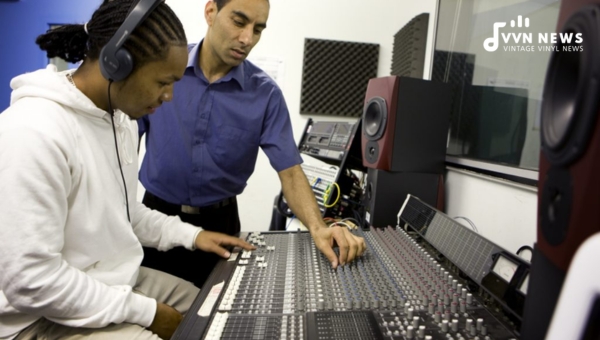
An Audio Engineer is a professional who works with the technology associated with sound, for recording, mixing, and reproducing. Their job roles often include setting up, installing, and maintaining sound equipment, adjusting acoustics for the best sound quality, synchronizing sounds and dialogues, and using audio software to create sound effects.
They typically work in studios or live events like concerts and theatre performances. Depending on their specialization field they can be known as recording engineers, sound designers, broadcast engineers music engineers etc.
Also Read: What Is Proximity Effect? [Understand Its Impact On Audio Quality]
Producing Quality Recordings
The first step in audio engineering is to create quality recordings. This is arguably one of the most critical steps because if a recording isn’t done well, no amount of post-production work can salvage it fully.
This involves the use of high-quality microphones to capture clear and balanced sound.
Additionally, an audio engineer should understand sound and mic placement techniques to avoid unwanted distortions or noise.
During this phase, the audio engineer also works closely with artists or creators, making sure they’re comfortable and can perform at their best.
They’ll also often decide on the arrangement and structuring of the recorded pieces.
Mixing Recordings
Once a recording has been made, it’s time for mixing. This is where individual tracks are balanced to work together pleasingly.
Factors such as volume levels, equalization (or EQ), panning (which distributes sound across left and right speakers), and effects like reverb or distortion are considered at this stage.
A great mix often means each element or instrument in the track can be clearly heard without overwhelming others.
The desire is for harmonious integration where elements complement one another rather than compete.
Mastering The Final Mix
Mastering is what happens once all elements have been mixed. This process optimizes your final mix for whatever medium it will be played on – streaming platforms, vinyl, CDs, or radio play.
Audio engineers adjust overall compression levels during mastering to ensure volume consistency across an entire album or soundtrack.
They may tweak equalization for smoother transitions between tracks and ensure stereo enhancement is balanced without abnormal panning effects.
Maintaining And Managing A Professional Recording Studio
In addition to hands-on work with sound, part of audio engineering also involves looking after a recording studio’s maintenance and daily management tasks.
This includes ensuring that all recording equipment remains in good working condition besides environment optimization for best acoustic results.
Managing usually means dealing with booking schedules, maintaining security protocols for valuable gear handling, upgrading studio hardware/software when needed, and making comfortable arrangements understood by visiting artists.
Being an audio engineer thus straddles creativity & technical prowess, precision & spontaneity – finely balancing artistry with science as melodies mold into rewarding masterpieces that please the ears while stirring souls.
Types of Audio Engineers
Many audio engineers focus on specific aspects of sound engineering throughout the audio industry.
Let’s explore these various types to understand their roles and responsibilities.
Also Read: 17 Best Patchbay For Studio & Live Audio [Organize Your Gear]
Audio Design Engineers
Audio design engineers are generally associated with the intricate shaping and creation of sounds, especially within multimedia productions like film and video games.
They craft unique sound effects that elevate the narrative. Often possessing a blend of creativity and technical acumen, they use computer software to manipulate pre-recorded sounds or generate new ones from scratch.
They sometimes might also be dubbing dialogues or adjusting voice qualities (like pitch) in animated films.
Systems Engineers
Systems engineers lean more toward the technical side of things. These individuals set up, maintain, and repair equipment required for recording or performances.
This might include mixing desks, cables, amplifiers, or digital interfaces. A profound understanding of signal flow and troubleshooting is essential for these professionals to ensure smooth functioning at concerts and recording sessions.
Audio Post Engineers
Also known as post-production engineers, these professionals possess skills crucial to film and television production workflows.
They edit, clean up noise or distortions, synchronize sound with visuals (like lip movements), and adjust levels for final broadcast standards in post-production houses.
Their role often involves working closely with directors to ensure the audible elements align perfectly with visual content.
Live Sound Engineers
Live sound engineers excel in real-time situations such as concerts and theater productions.
They work to ensure sound clarity and quality reaches the audience without a hitch.
To achieve this, they adjust microphone placements, monitor system outputs, mix live inputs for balance, tweak EQ settings, and handle lighting cues simultaneously.
Tackling sudden changes and maintaining sound consistency is integral to their job.
Mastering Engineers
Once a musical track has been recorded and mixed, it heads to the mastering engineer.
This stage is about adding the finishing touches – enhancing specific frequencies, creating uniformity across all tracks regarding volume level and tone, creating fades or crossfades, and preparing the final master for duplication or digital release.
Many mastering engineers provide critical feedback on mixes before proceeding with their work.
Mix Engineers
The role of a mix engineer is both technical and creative. They focus on combining multiple layers of recorded sound to achieve balanced and harmonious results – this might involve adjusting volumes of different instruments or vocals (also known as levels), applying effects like reverb/equalization/compression (also known as processing), or perfecting panning decisions to create spatial awareness in stereo imaging.
Recording Engineers
Recording engineers are typically the first people involved in bringing audio to life.
They’re responsible for capturing sound with optimum quality, which consists of understanding microphone techniques, choosing suitable recording spaces considering room acoustics (such as recording studios or on-location sites), operating recording equipment/software effectively (like Pro Tools/Logic Pro X/Ableton), handling inputs for pre-amps/mixers/outboard gear/digital interfaces accurately during tracking sessions.
Each type of audio engineer plays a vital role within the complex realms of music production or post-production workflows, depending upon their areas of expertise.
Also Read: 19 Best Audio Interfaces For Home & Studio Recording 2025
Audio Engineer Skills
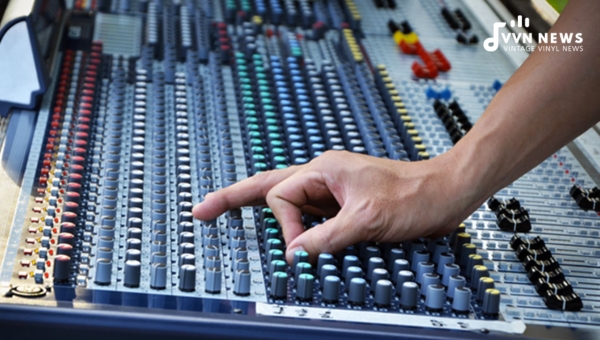
Being an audio engineer requires more than just loving sound. It necessitates a blend of several technical and non-technical skills.
Here’s a breakdown of what’s needed:
Technical Skills
- Understanding Sound and Acoustic Principles: Interpreting how sound behaves in different environments is pivotal. This includes recognizing various types of echoes, room reverb, and feedback.
- Proficient with Audio Equipment: Proficiency with mixing consoles, microphones, amplifiers, and speakers is a must in this line of work.
- Knowledge of Software Programs: Familiarity with a diverse range of sound editing software, like Pro Tools, Ableton Live, Logic Pro X, etc., is fundamental to producing high-quality audio content.
- Basics of Electronics: A basic understanding of electronics helps an engineer troubleshoot problems on-site or during recordings.
Non-Technical Skills
- Communication Skills: Audio engineers often work in troupes or as part of teams. Ensuring your ideas are interpreted correctly by other team members requires excellent communication skills.
- Attention to Detail: Engineers must be spot-on with micro-level adjustments significantly affecting the final audio output.
- Creativity: Even though their work is highly technical, creativity helps shine through unique audio experiences.
- Patience & Persistence: This comes in handy while sifting through numerous takes only to find the one perfect sound.
- Organizational Skills: Juggling between tasks like recording, mixing, and mastering tracks requires exemplary organizational skills.
Incorporating these skills can truly elevate an aspiring audio engineer’s craft, enabling them to thrive and excel in this dynamic field.
Roles of Audio Engineers
Audio engineers play crucial roles in varied fields, each imposing unique challenges and responsibilities. Let’s delve into some of these exciting roles in detail.
Film Production – Sound Effects and Tracks
Audio engineers work with directors and producers in film production to create a seamless sensory experience.
Their work goes beyond just recording dialogue on set. They’re involved in producing all kinds of sound effects, from subtle background noises to more prominent sounds that move the scene’s narrative forward.
The symphony of sounds you hear raining down from an action sequence? That’s an audio engineer’s craft at work!
Moreover, audio engineers play a vital role in mixing and mastering the film’s musical soundtrack.
They can engineer a perfect balance between music, dialogue, and sound effects so that no sound overpowers another, yet each one successfully evokes intended emotions from the audience.
Movie Theaters – Sound Designers
In movie theaters, audio engineers often morph into meticulous sound designers. Their expertise can significantly influence a movie-goer’s experience.
They are responsible for ensuring optimal acoustics in a theatre room so that everyone in the audience equally experiences each whisper or explosive sound effect as intended by the movie creators.
Also Read: Spring Reverb [Guide To This Special Audio Effect]
Broadcasting – Audio Production
The field of broadcasting is another arena where audio engineers shine.
These professionals are involved throughout different production stages, from pre-production planning to recording, editing, mixing, and broadcasting.
They facilitate the clear transmission of TV shows, radio programs, or podcasts while creating other auditory elements like jingles or ads that need to be played intermittently.
Colleges and Universities – Teaching Audio Engineering
The vast knowledge and practical expertise that seasoned audio engineers possess can greatly benefit aspiring sound-enthusiast students at colleges or universities.
Here, they teach audio engineering courses, bestowing students with critical technical skills from understanding complex software interfaces to nuanced microphone placement techniques but equally important are insights into industry trends or insider tips they share based on their real-world experiences.
Live Theater – Audio Playback and Live Sound Management
For those who enjoy the real-time thrill, working on live theater productions could be an ideal professional playground for an audio engineer.
Here, they manage audio playback by cueing up music tracks or pre-designed effects at precise moments during the performance.
Apart from this, live theater also demands live sound management imagine managing microphones for every actor via body packs or booms and overseeing their live feeds without any hiccups!
Moreover, maintaining excellent communication with stagehands while deftly adjusting controls during performances is another testament to their skills a couple of seconds too late could mean disrupting a poignant moment; too early might dilute an energetic climax!
Popular Audio Engineering Techniques
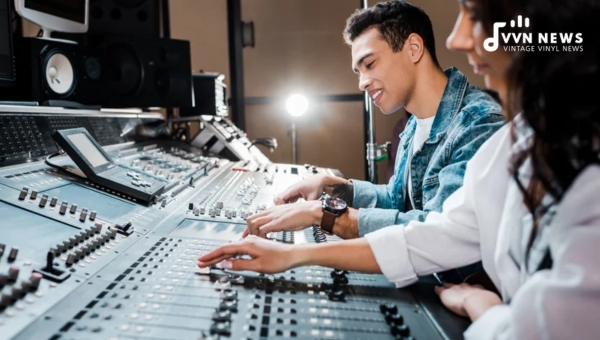
Several established audio engineering techniques ensure the creation of high-quality, balanced, and nuanced sound.
These strategies fall under the umbrella of audio engineering but essentially comprise its backbone, contributing directly to the outcome of a sound engineer’s work.
Here are some of them:
Reverb
Reverb, or reverberation, is the echo or ambiance added to sound to give it depth and warmth.
It creates a sense of space by simulating echoes you would hear in different environments – for example, a small room has other reverb characteristics than a large cavern or an open field.
The key in mastering reverb lies in selecting or designing the right type for your specific sound scenario and mixing it at just the right level.
Compression
Compression is another fundamental technique used frequently in audio engineering.
Its purpose is to manage and balance out the dynamic range of an audio signal, ensuring no part is too loud or too quiet relative to other factors.
Engineers can smooth out uneven levels and ensure a consistent sonic experience by manipulating thresholds, ratios, attacks, and releases.
Sidechaining
As an advanced type of compression, sidechaining uses one sound as a trigger for controlling another sound’s volume level.
This can help create space in crowded mixes by silencing certain sounds when other more essential sounds are playing—consider how background music on radio programs dips when speech begins.
Mix Bus Compression
In mix bus compression – another form of dynamic processing – an engineer applies mild compression across an entire mix via its master fader (or “mix bus”).
This can help gel tracks together into a cohesive piece rather than treating each individually—providing overall unity and cohesion to your mix.
Also Read: Noise Gate In Music [How To Use This Audio Mastering Tool?]
EQ Matching
EQ Matching is another handy technique that involves adjusting frequency balance by referencing one track from another.
For example, if you love how precise and punchy your favorite record sounds, EQ matching can transpose those same frequency balances onto your mixes, helping you achieve a similar tonality or spatial balance.
Ducking
Automatic volume lowering during vocal passages (also known as ducking) ensures vocals come out clear in a mix without manually adjusting fader settings every time someone opens their mouth.
Attributing greater importance to vocal tracks over instrumental sections during the mixing stage ensures clarity while maintaining musical interest.
Mastering
Lastly but arguably most vitally: mastering. A critical step after recording and mixing: Here, all elements come together for a final polish before distribution—the process includes sequencing track order, setting spacing between songs, applying equalization, and dynamics processing across the entire project.
Upgrading stereo imaging qualities is also under its jurisdiction—a subtle nuances provider yet a game-changer!
For those willing to dive deep into the lucrative world of sonic designing, acquiring these skills must be done meticulously —they form intricate layers composing any formative audio project.
Ensuring each technique’s optimal understanding & application will undoubtedly elevate you on the road to becoming a successful audio engineer!
And there we have it—an overview of seven fundamental techniques popular among today’s audio engineers!
How to Become an Audio Engineer
As you’ve probably realized by now, audio engineering isn’t your typical, everyday career. It’s a path of sound exploration that often begins with a passion for music and sound.
And just like any professional journey, it demands both education and practical experience. Follow these steps as you begin your journey towards becoming an audio engineer.
Establish a Digital Footprint
In today’s connected world, online presence is crucial in nearly every profession, and audio engineering is no exception.
Whether remixing popular songs or producing original sounds, uploading them onto platforms like SoundCloud, Bandcamp, or YouTube will help showcase your skills to potential employers and attract collaborations.
A strong digital footprint can also be your unique portfolio when applying for jobs or freelance gigs.
Gain Relevant Experience
Practical experience is paramount in the world of audio engineering. You can start by volunteering at local events where live sound is required or work with indie music productions to learn the ropes.
This will give you hands-on expertise in dealing with sound equipment and exposure to real-life challenges that arise during the recording process.
Gradually, try progressing into internships at radio stations or recording studios where you can familiarize yourself with state-of-the-art technology and network with industry veterans.
Establish Networks
Building reliable relationships within the industry is as critical as acquiring technical skills. Attend audio exhibition conventions like AES conventions, participate in webinars, or join local clubs dedicated to music production.
Networking expands opportunities to collaborate on projects, explore job opportunities, and find mentors who can guide you through your career.
Also Read: Microphone Basics [Increase Your Audio Quality With These Tips]
Pursue a Music-Related Education or Earn Relevant Certifications
While a formal education isn’t always necessary for becoming an audio engineer, it does provide structured learning and legitimizes your credentials.
Pursue a music technology, acoustics, or physics degree from institutions offering such courses.
Alternatively, focus on certifications from reputable sources that specialize in teaching specific aspects of audio engineering that emphasize practical application over theory, like those offered by Coursera, Berklee College of Music, etc.
Look at Certification Options
On top of relevant education, several software companies offer certifications for their product suites – Pro Tools certification being a popular one among them provided by the Avid Learning program.
These certifications indicate professionalism and expertise on specific platforms, which might increase hiring ability, especially if desired by distinct studios or employers.
After careful analysis and introspection, if this path still resonates with you, welcome aboard!
The journey might be challenging but equally rewarding; after all, creating invisible worlds heard by millions isn’t something everyone gets a chance at!
Audio Engineers Salary
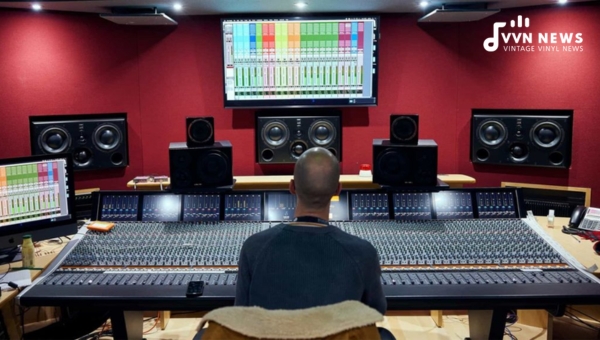
Regarding the remuneration of audio engineers, much depends on the level of expertise, geographical location, and the industry in which they work.
Being a broad field with numerous specializations, salaries can vary greatly.
Entry Level Audio Engineers
For those just getting started as an audio engineer – entry-level salaries can range between $25,000 – $50,000 yearly, however, these figures may rise with experience and increased skills.
Mid-level Audio Engineers
With a few years of experience under their belts, mid-level audio engineers can expect to earn $40,000 – $75,000 annually.
Experienced Audio Engineers
Once audio engineers hit their stride with substantial industry experience and a solid reputation for top-tier work, the sky’s the limit. They could draw in a six-figure salary of over $100,000 per annum.
While these figures provide a general guide for full-time wages across the US market – freelance and contractual opportunities are also worth considering.
This could allow for additional earning potential depending on the nature and volume of projects.
It’s important to note that, like any other profession, success as an audio engineer is often synonymous with hard work, dedication, and continuous learning.
FAQs About Audio Engineers
What is the primary function of an audio engineer?
An audio engineer’s primary function is to record, mix, and reproduce sound across various industries, ensuring the highest audio quality.
Can an audio engineer work in the film industry?
Yes, absolutely. Audio engineers can work in film production, curating sound effects, and background scores for perfect sync with the visuals.
What are some popular techniques used by audio engineers?
Techniques commonly used include Reverb, Compression, and Sidechaining to enhance sound quality and effects.
How can I become a professional audio engineer?
To become an audio engineer, you could pursue a music-related education or relevant certifications, establish a solid digital footprint, and gain extensive experience within the sector.
What’s the difference between an audio engineer and a sound designer?
While both involve working with sound, an audio engineer focuses on technically capturing and manipulating sound, whereas a sound designer creatively designs unique sounds using available tools.
Conclusion
Audio engineers play a pivotal role in our auditory experiences – from the seamless melodies we adore in music to the exhilarating sound effects in our favorite films.
They bring in both technical prowess and creative skills to enhance sound quality.
They work tirelessly behind the scenes, often unnoticed, but their contributions are immeasurable.
From creating intricate soundscapes that complement visual content perfectly to live sound production that gets crowds moving, audio engineers are indeed the unsung heroes of the entertainment industry.
